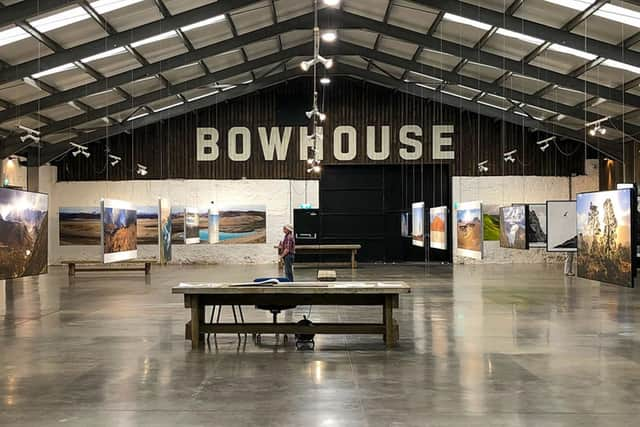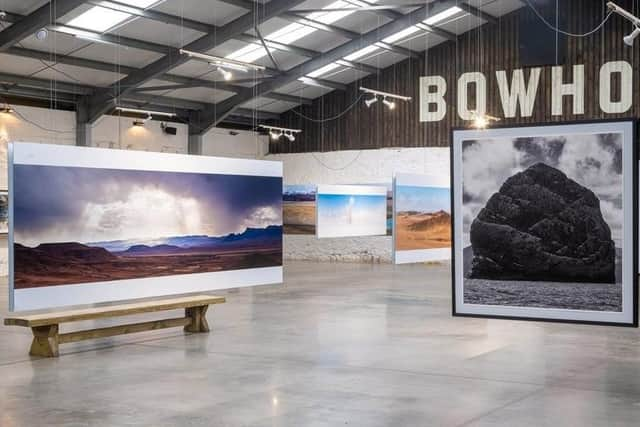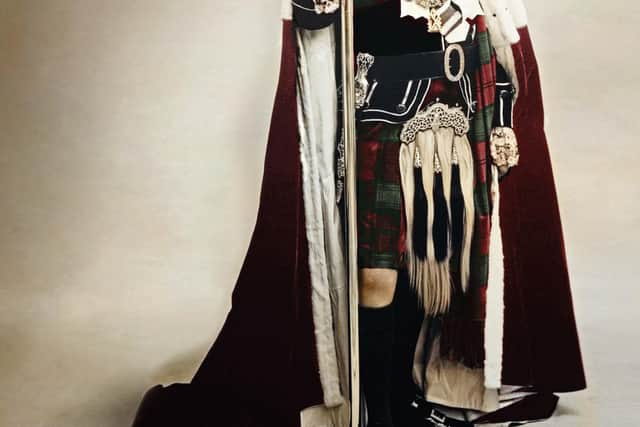Fife venue hosts renowned photographer Alexander Lindsay's largest exhibition
and live on Freeview channel 276
These epic images, printed by Lindsay in his studio in Fife, are up to eight metres wide and transform the unique venue of Bowhouse’s Main Hall in St Monans into an extraordinary Art Gallery.
In parallel, the exhibition’s event programme at Bowhouse has been gathering experts in their field to consider photography from its origins through to the contemporary scene, with a spectacular Symposium of talks, presentations and panel discussions.
Advertisement
Hide AdAdvertisement
Hide AdThis Friday, August 5, at 6pm, Alexander Lindsay himself will discuss his expeditions to film and photograph the wreck of the Titanic, four kilometres below the ocean’s waves, in ‘Exploring and Documenting the Wreck of the Titanic’


He was ‘Director/Producer of Film and Photography’ for two expeditions to the wreck, and his team developed the largest lighting arsenal ever to be lowered to the ocean floor.
He worked with, amongst others, the Cousteau family and Hollywood director James Cameron.
Lindsay's Titanic imaging involvement continues to this day: the pioneering digital techniques he developed for recording the wreck have led directly to the methods he employs for his large scale landscape photographs.


Advertisement
Hide AdAdvertisement
Hide AdOn Saturday, August 6, at 6pm, Ludovic Lindsay will give a talk on ‘The Lindsays of Balcarres: A Century of an Ancient Fife Family in Photographs’.
In his recently published book ‘The Lindsays of Balcarres’, Ludovic Lindsay explores and presents his recent ancestors’ often remarkable untold stories over a century from the birth of photography in 1840.
This extraordinary collection of hitherto unpublished images by both family members and pioneering photographers of the age illustrates one Fife family’s involvement in arenas as diverse as astronomy to the arts, coal mining to agriculture, exploration on great ocean-going yachts to military endeavours, and politics to scientific and technological advances.
Prior to Ludovic Lindsay’s talk, those who arrive 40 minutes early will be able to join an artist’s tour of the Alexander Lindsay Photographic Exhibition.


Advertisement
Hide AdAdvertisement
Hide AdThe exhibition introduces a new body of Lindsay’s work – ‘The Abandoned Edge: Storytelling Through the Eyes’, created in the Outer Hebrides and St Kilda in Spring 2022.
The theme focuses on the shifting boundaries between man and nature and the traces left by communities in retreat from the Scottish islands over the course of the 20th century.
Immersive landscape photographs from Lindsay’s decade-long travels through wilderness regions at and beyond the edges of human influence include defining work shot in the Atacama Desert in South America, the mountainous Grand Teton National Park in Wyoming USA, Scotland and across South Africa, Namibia, and Lesotho.
Lindsay also presents film footage from his pioneering deep ocean filming of the wreck of the Titanic, his award-winning combat filming during the Soviet occupation of Afghanistan and his video artworks.
Advertisement
Hide AdAdvertisement
Hide AdAt the core of Lindsay’s landscape work is his desire to document it faithfully and reverently.
He said: “The magnificent desolations on the surface of our planet are a shrinking reality to which I and my cameras are magnetically drawn”.
The finished images demand attention: a sensory immersion, a fresh and vicarious thrill that fuses classical landscape depiction with the best of epic cinematic composition.
They are the latest expression in his life’s journey as a photographer, documentary filmmaker, deep ocean explorer and artist.
Advertisement
Hide AdAdvertisement
Hide AdThe exhibition is designed to appeal to all ages and is free to visit. It is open daily, 10am to 6pm, until Sunday, August 7.
The symposium events are free to attend but places are limited and must be booked in advance at www.alexander-lindsay.com.
